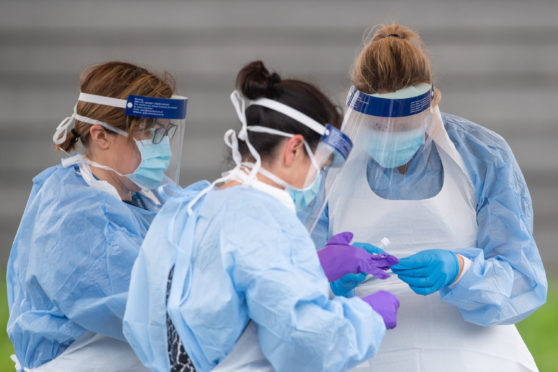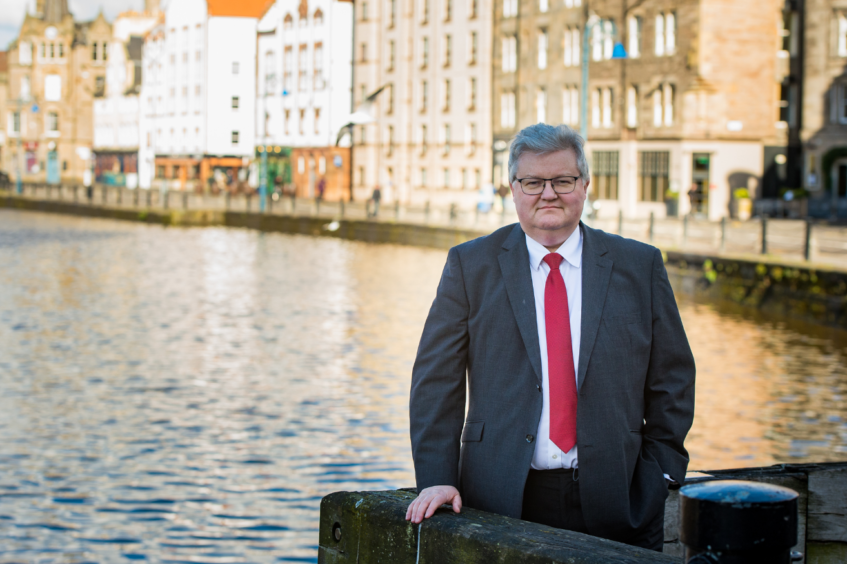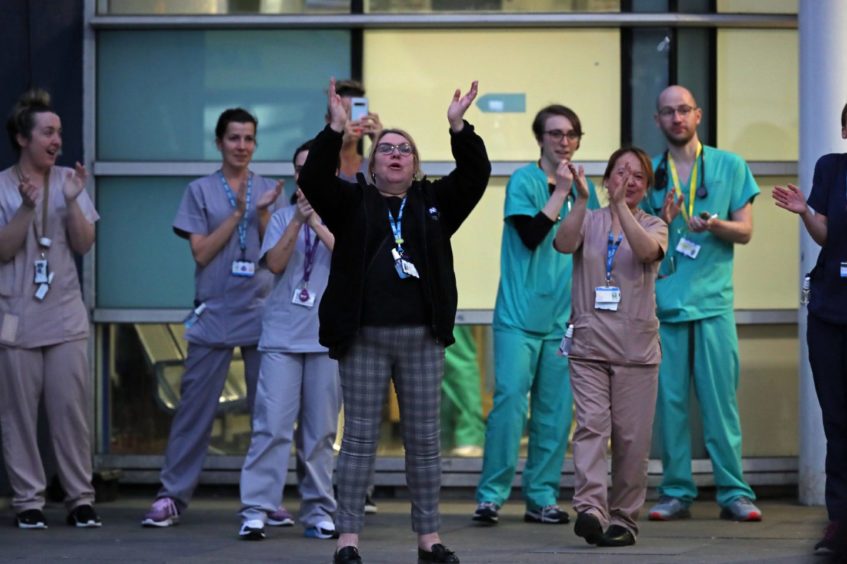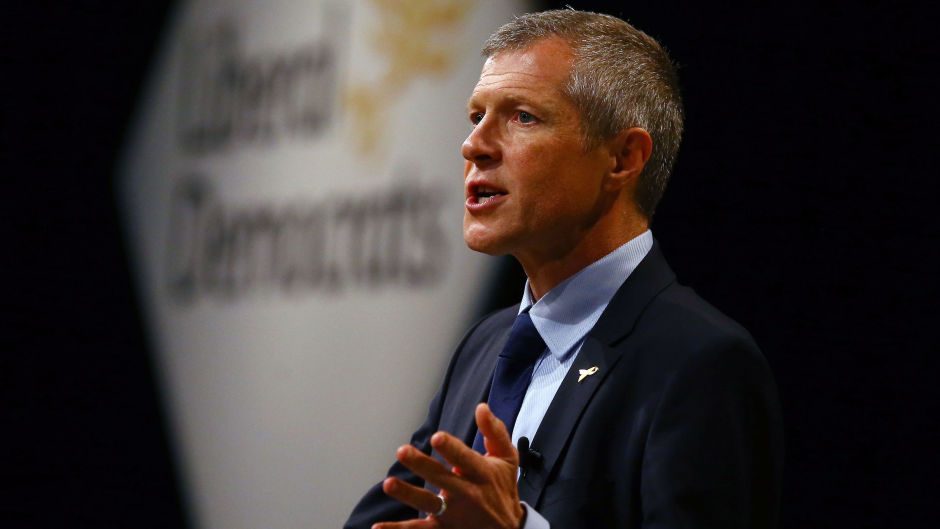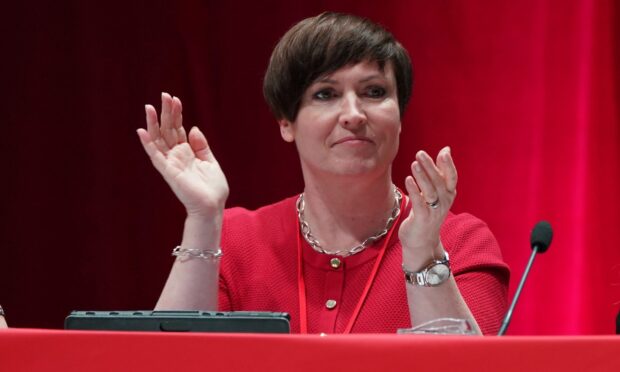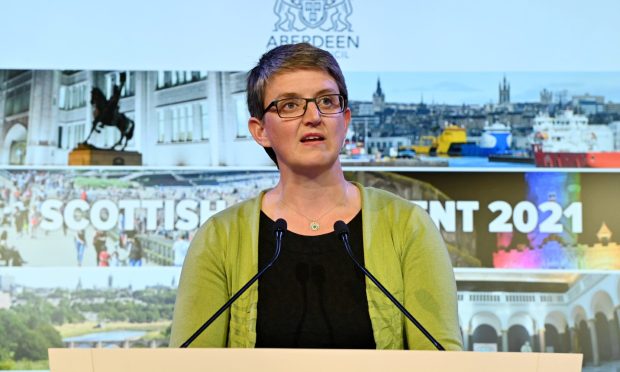One of Scotland’s leading psychiatrists believes “fundamental change” is needed to support health and social care workers who have had to “digest the mentally indigestible” as a result of the coronavirus crisis.
Professor John Crichton, chair of the Royal College of Psychiatrists in Scotland, said health boards across Scotland have for “too long” failed to make the well-being of NHS staff a priority.
It comes as new YouGov polling released on Thursday revealed half of the 996 healthcare workers questioned across the UK said their mental health had deteriorated since the Covid-19 outbreak began.
Prof Crichton said while he is keen to see “anticipated announcements” from the Scottish Government on what it is planning to do to support NHS workers in this area, he also wants to see a “fundamental change” in how the mental health of health workers is provided.
While there is a “rich variety” of support on offer, including the Our Frontline campaign launched on Wednesday by leading mental health charities across the UK to provide round-the-clock mental health support to those working on the frontline against coronavirus, more can be done, the psychiatrist argues.
He said: “There are lots of other mental health services but the task of government is to marshal those resources and make sure they’re available in the most appropriate way to health and social care staff who have never before had to work in this way and witness situations they could never have anticipated and mentally digest the mentally indigestible.
“What I’m keen to see is not only these keenly anticipated announcements about what they’re doing but a fundamental change in how we support the mental health of health workers.
“This cannot be something that is a flash in the pan.”
Although the coronavirus pandemic has brought the mental health of NHS workers into immediate focus, healthcare professionals have always faced challenges and had risks associated with their mental health because of the job they do and it deserves urgent attention, Prof Crichton adds.
In 2018, NHS England launched the Practitioner Health Programme, a free and confidential NHS service for doctors and dentists with issues relating to a mental or physical concern or addiction problems, when it might affect their work.
Prof Crichton said: “Mental health has been something that isn’t a priority for too long.
“In some ways England is ahead of us with the Practitioner Health Programme.
“We have been trying to set up a Scottish version of that.
“We know doctors have particular problems accessing regular mental health services and support.”
It is understood work is already under way at a Scottish government level on providing support to health and social care workers with their mental health during the crisis, with announcements on this strategy expected in the near future.
We know doctors have particular problems accessing regular mental health services and support.”
Prof Crichton, chair of the Royal College of Psychiatrists.
Individual health boards have also already started work on strategies to support the mental health of staff during this time.
A spokeswoman for NHS Grampian said the body is aware of the “potential mental toll” the outbreak could take on staff and has put it at the forefront of its planning from the beginning.
A drop in centre has also been set up at ARI, open for all NHS Grampian staff, where they can speak directly to the psychology team.
This is open seven days a week with staff allowed to access the facility without any kind of referral.
Meanwhile, director of workforce at NHS Tayside, George Doherty, said the health board recognises that the coronavirus pandemic has placed “huge pressure” on its staff and has implemented 24/7 counselling support along with spaces for staff to “reflect and recuperate”.
He said: “Everyone in our team has responded fantastically to the challenges faced by NHS Tayside – whether that is changing, at a very fast pace, the way they work each day or being asked to take on new roles or work in different areas.
“At the same time, we understand that each individual also carries their own personal worries for the risks faced by their families and those they care about.
“Ensuring every member of staff is – and feels – supported during these times is a priority for us, and NHS Tayside has been developing additional measures to help our staff manage their mental health and wellbeing.
“These range from providing spaces where staff can reflect and recuperate, access to 24/7 counselling support and a community listening service to a staff wellbeing website which is full of useful links, specialist advice and guidance to support our employees during this difficult time.”
Prof Crichton said doctors and nurses have seen their usual routines “thrown out the window”, with health professionals left having to find a “completely different way of working” more or less overnight.
He added: “That’s something we’re doing incredibly well but as time goes on we need the support for that.
“The right way to protect the wellbeing of health and social care workers is to give them what they need.
“What they need is clear in terms of PPE so that people know they’re safe in their workplace but they need all the rest as well.
“The wellbeing of NHS staff has for too long been on the back foot and not been a priority for health boards.
“Even before Covid-19 we had surveys conducted by the General Medical Council (GMC) showing major problems amongst the medical workforce across the UK and a key job of the health boards is to ensure the wellbeing of all their staff.”
What they need is clear in terms of PPE so that people know they’re safe in their workplace but they need all the rest as well.”
Prof Crichton, chair of the Royal College of Psychiatrists.
Before the pandemic this could include matters as basic as having somewhere to park for work and a space to complete confidential work, but now includes having sufficient PPE and functioning IT for those health professionals working remotely.
Prof Crichton, who has carried out 153 patient assessments via telephone in the last month, said: “For those of us that are part of the army of health workers working from home locations we need to have reliable IT so that we can contact our patients by telephone and video-link.
“That’s very simple to say but it’s actually an enormous task and the IT needs just the same organisational effort and determination as the building of the Louisa Jordan Hospital.
“It requires identifying that army of health workers who are working remotely or in NHS settings.
“It means an upgrading of what is done for them in a way that’s never happened before in the NHS.”
The issue of mental health is one that has been repeatedly highlighted by the First Minister during the Covid-19 pandemic, with the Scottish Government launching a new campaign aimed at helping people through the coronavirus lockdown.
Announced by the First Minister Nicola Sturgeon on Tuesday, the Clear Your Head campaign highlights practical steps Scots can take to manage their mental health during lockdown, including sticking to a routine and staying in touch with people.
On Wednesday the Scottish Liberal Democrats unveiled the party’s five-point plan for supporting frontline health and social care staff through the coronavirus crisis, including the creation of a dedicated staff mental health and trauma helpline for frontline workers.
The leader of the party, Willie Rennie, said: “Working in the NHS and in social care can be a stressful job at the best of times but at this time of crisis the pressure on staff is immense.
“Health professionals, and most especially those on the frontline and in red zone wards, are being exposed to an a much greater level of trauma and death than we’d ever have imagined they would be.
“Liberal Democrats want to see the government establish a dedicated staff mental health and trauma helpline for frontline workers, which gets them straight to a trauma-trained counsellor if needed.
“We need to take swift action to cope with the stress of this crisis and have help on hand to anyone in need.”
There have been suggestions the coronavirus outbreak could eventually lead to a mental health pandemic, following lengthy periods of isolation.
Prof Crichton said while this has likely been overstated, mental health professionals do expected that individuals will require help as a result of their experience of the pandemic and that mental health services will experience a knock-on impact from not operating normally during its duration.
He said: “There was real concern in the Second World War over huge numbers of psychiatric injuries as a consequence of the threat of civilian bombing and those fears, we can be glad, never came about.
“I can’t identify anybody at the moment whose life hasn’t been turned upside down.
“I think we can anticipate that people will need help with mental health as a consequence of the experience they’re going through and I think we can also anticipate there will be consequences because mental health services are not working normally.”
A Scottish Government spokeswoman said: “Protecting our brave and dedicated health and social care workers, including their mental health, is our absolute priority.
“The Minister for mental health has written to health boards about the importance of support for workforce wellbeing and all boards have developed responses to support their staff in response to the Covid-19 outbreak.
“These responses include staff wellbeing ‘hubs’ and services, staff helplines and phone services, links with Occupational Health and Chaplaincy services, wellbeing and mental health guidance.
“With the help of the BMA, RCN, Scottish Care, Unions and other partners, NHS Education for Scotland is developing national resources, training models and systems of practice support to promote and address staff psychological wellbeing and resilience arising from the Covid-19 response.
“The intention is to provide a ‘ladder’ of support spanning early intervention to complex care. This will help with prevention, early intervention and treatment of stress, anxiety, burn out, depression and post-traumatic stress disorder and details will be publicised shortly.”
